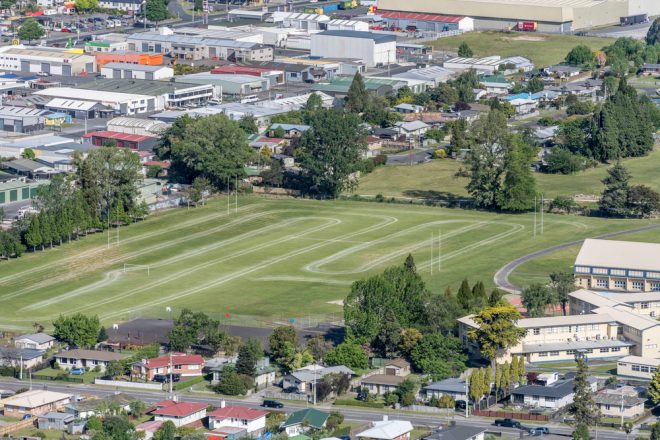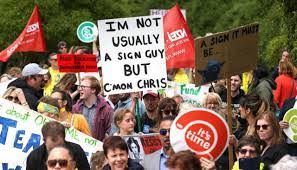Teenagers are ending the third school term today with 93,000 fewer NCEA pass marks than at the same time last year.
The figures provided to RNZ by the Qualifications Authority show schools had reported 1.4 million achieved, merit and excellence results to the authority so far this year, 6 percent fewer than last year and 20 percent fewer than the same time in 2019.
The figures show Auckland, the region most affected by lockdowns this year, had reported 4 percent fewer positive NCEA results than last year while areas including Gisborne, Marlborough and Otago had 10-12 percent fewer results.
They also show there are 7 percent more not-achieved results than the same time last year, but fewer than in 2019.
Secondary Principals Association president Vaughan Couillault said he was not surprised schools had reported fewer results to the Qualifications Authority than last year.
“One of the things about this lockdown which is quite different to what we experienced last year is its proximity to the end of the year. Whilst before we went into lockdown the data probably suggested we were a little bit ahead in terms of positive reported results, a couple of months later things have slowed down dramatically,” he said.
Couillault said it was likely many schools had completed and marked internal assessments which they needed to double-check before reporting to NZQA.
“That’s paused a little bit in some areas or with some assessment pieces such that there’s a little bit of a backlog and I would suspect that when we get back to level two and back to face-to-face there’ll be a slight spike in the amount of positive reported results that go through to NZQA,” he said.
Josiah Aliimalemanu from Onehunga High School told RNZ the lockdown had prevented him from completing some internal assessments.
“I had a lot of assessments due around this week but for music performances you can’t actually do it online, and PE assessments which are physical you can’t actually do,” he said.
Josiah said that meant he would have to do the assessments next term when he would rather be preparing for exams.
Fellow Year 13 student Faith Fineanganofo said it was more difficult to complete internal assessments at home than in the classroom and she was disappointed that she would have to spend some of the holidays preparing for internal assessments next term.
The school’s principal, Deidre Shea, said the timing of this year’s lockdown made it more disruptive than last year’s national lockdown and subsequent Auckland lockdowns.
“We’re rubbing up against the pointy end of the year in terms of assessment which means that students have been more disadvantaged in a sense than last year because they were close to completing, in some cases, pieces of work when we went into lockdown.”
She said schools would be reassuring students that even if they had not completed as much as they normally might have, they still had time to catch up.
“There will be the opportunity to keep going with their learning and with their achievement and so not stressing too much if they’re not in a position right now to complete an assessment or to undertake an assessment in the first place,” she said.
Shea said the extra learning recognition credits available to students this year should be enough to fill any shortfalls in students’ achievement.
The Qualifications Authority deputy chief executive assessment Andrea Gray said the drop in reported results was not surprising.
“Term 3 is usually when schools plan to do a considerable amount of assessment, so given the timing of lockdown, a decrease in reported results compared to last year and 2019 is not surprising,” she said.
She said this year’s changes to NCEA and to University Entrance were calculated to reflect the timing of the lockdown and the amount of time students had been out of their classrooms.
SOURCE: RNZ News





























































